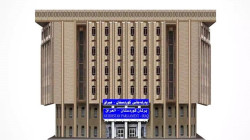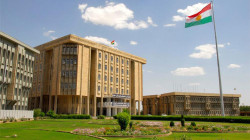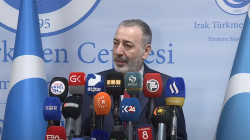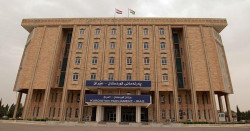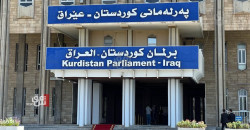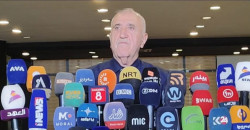Kurdistan Parliament elections: A new political map, and no alliances yet
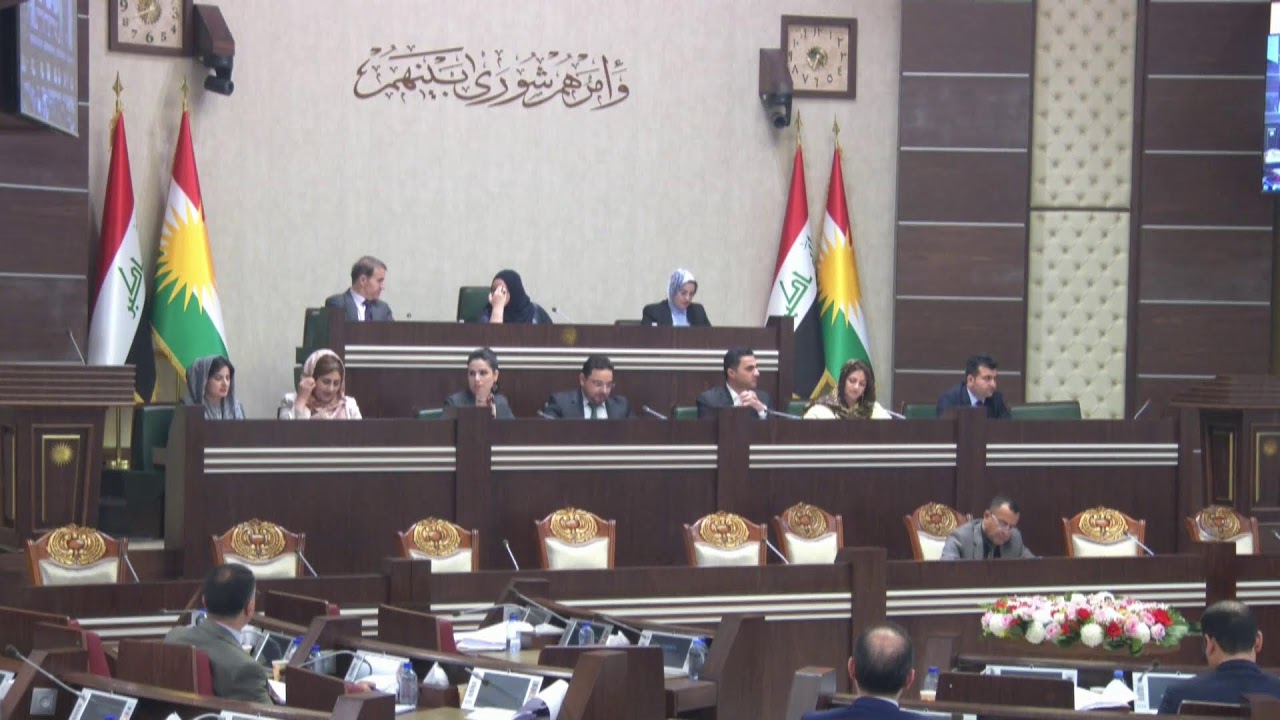
Shafaq News/ The electoral map of the Kurdistan Region may witness a significant shift in the upcoming sixth parliamentary elections, according to experts in the electoral field. This is due to the new law that divides the region into four electoral districts.
The political parties have not yet formed clear alliances or coalitions, while the citizens urge to remove the barriers that impede the electoral process and stress the importance of holding the elections as scheduled on June 10th.
President of the Kurdistan Region (KRI) Nechirvan Barzani issued a regional decree on Sunday, setting June 10th as the date for the sixth parliamentary elections.
Overcoming the obstacles
Fakhir Az al-Din, a resident of al-Sulaymaniyah, tells Shafaq News Agency that "there may be challenges and obstacles in any elections in any advanced country, but this does not mean that the problem is insurmountable."
He adds that "the elections are a constitutional and natural right of the citizen and no one should tamper with it. Everyone should abide by this right that is enshrined in the constitution."
Az al-Din continues, "This is the third time that the date for the Kurdistan Parliament elections is set. These elections are crucial for forming the regional and local governments, as the work of the provincial governments is almost paralyzed for various reasons, the most important of which is the dissolution of the provincial councils and the new electoral decision for the Kurdistan Parliament."
He explains that "postponing the Kurdistan Parliament elections will affect the performance of the local governments in the province, which are related to the daily life of the citizen. Therefore, it is necessary to overcome the obstacles that may face the process, whether they are logistical or political, in order to achieve the constitutional right."
Demands for active participation
Ali Hussein, a citizen from Karmian, says to Shafaq News Agency's correspondent, that "the active participation of the citizens is what will ensure our constitutional right to choose our representatives in the regional parliament and the local governments. Without our participation, the situation will worsen. We should use the remaining time to update the electronic cards and register the new age groups at the commission's offices."
However, Lahur Sheikh Jangi, the ousted leader of the Patriotic Union of Kurdistan (PUK), believes that the active participation of the people of Kurdistan in these elections is a "golden opportunity to correct the path of governance" in Kurdistan and restore the status of the Kurdistan Region in the international community.
Notably, the Independent High Electoral Commission announced that it extended the period for updating the data of the voters in the Kurdistan Region for five more days, according to Jumana al-Ghali, the spokeswoman for the commission.
The process of updating the data of the voters who will be able to vote from the births of 2006 was supposed to end by the Electoral Commission on Thursday, February 29th.
Bassam Ali, a senior member of the Kurdistan Democratic Party (KDP), said to Shafaq News Agency, that "the presidency of the region is the only authority that can determine the date of the elections. It was determined twice before, but it was canceled due to the decision of the Federal Court. The new date was set by the presidency of the region in coordination with the Independent Electoral Commission in Baghdad. It came after thorough discussions that guaranteed its implementation in its specified time."
Barham Sheikh Raouf, a senior member of the PUK, stated to Shafaq News Agency, that "many meetings were held between the political parties before setting the date for the elections. The National Union participated in all those meetings. There is a consensus and a political agreement to hold them on this date. We do not see the need to delay them further."
Preparations and alliances
Barham Sheikh Raouf says that the PUK is ready for the sixth session of the Kurdistan Parliament elections on the date set by the President of the Kurdistan Region on June 10, 2024.
He confirms that the PUK has not yet decided to form any alliances to participate in the Kurdistan Parliament elections. It will have an independent list in all electoral districts. He says that "all parties want to know their electoral weight in these elections, especially after the changes that occurred in the law."
Furthermore, Bassam Ali, a member of the KDP, agrees that "it is too early to form alliances at this time."
The Independent High Electoral Commission called on the Kurdish political parties that practice their political activity in the Kurdistan Region and want to participate in the sixth session of the Kurdistan Parliament elections to register the political alliances within a maximum period of 9 days. It indicated that the registration will be at the headquarters of the Department of Political Parties and Organizations Affairs in Baghdad and at the electoral offices in the provinces of the region.
Will the election law change the political map?
Sheikh Raouf, expects that the decision of the Federal Court to turn the region into four electoral districts and to determine the rule of the provinces in the next elections will have an impact on changing the political map in all regions of the region. He says that each region will have its true representative in the regional parliament. The Democratic Party is waiting for the Federal Supreme Court to send its decision on the election law to decide whether the amendment in the election law will affect the political map or not, according to Bassam Ali.
However, Hilsho Abdul Fattah, an electoral expert, explained to Shafaq News Agency that “the Federal Supreme Court's amendment on February 21st will have mixed effects. The small parties that used to get one or two seats in the regional parliament will lose them, as their votes will be scattered across the region. They will have to form alliances to secure their representation in the sixth session of the regional parliament.”
Abdul Fattah added that “the amendment will also have positive effects. The provinces will get their proportional rights and seats based on the population. The voter and the candidate will be closer, as the voter will choose a candidate from his province. He will be able to follow up and solve problems with him. The multiple districts will help prevent fraud. The fraud will only affect the district, not the whole region and the elections.”
Abdul Fattah says that “the elections will be held on June 10th, which will allow the Independent Electoral Commission in Iraq to finish the process before its legal term ends on July 7th. It has already advanced in the preparations of updating the voter register and registering the new categories. It needs to hasten the preparations to complete the process before the commission expires.”
Noteworthy, the Independent High Electoral Commission (IHEC) announced on Sunday, that it opened the registration for the Kurdish political parties and blocs that want to take part in the Kurdistan Region Parliament elections in 2024, from March 5 to March 14, which cannot be extended. The registration will be in Baghdad at the Department of Political Parties and Organizations Affairs and at the electoral offices in the Kurdistan Region provinces.
On Sunday, The Kurdistan Region President Nechirvan Barzani signed a regional order that sets the date for the next Kurdistan Region Parliament elections.
The order, which is based on the second paragraph of the first article of the amended Kurdistan Region Presidency Law No. (1) of 2005, sets June 10, 2024 as the date for the sixth session of the Kurdistan Parliament general elections.
The regional order states that all relevant parties must do what is necessary to cooperate and coordinate with the Independent High Electoral Commission to implement this order, which is effective from today, the day of its issuance.
